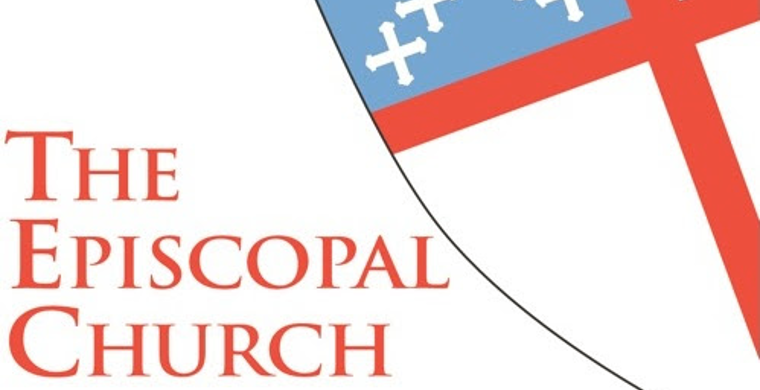Ecumenical Partners in Short Supply at Episcopal General Convention
By Jeff Walton
JUICY ECUMENISM
http://juicyecumenism.com/2
June 26, 2015
Episcopalians are continuing calls for unity with other Christian churches despite actions that have had the effect of increasing divisions between Episcopalians, Global South Anglicans and other branches of historic Christianity.
A number of international bishops from smaller Anglican provinces are in attendance at the Episcopal Church's triennial General Convention meeting in Salt Lake City, Utah, with a handful of ecumenical guests from other churches. None of the Anglican Communion's larger provinces are represented, and there is no bishop representing the Church of England in an official capacity at General Convention this year. There are no bishops from the Roman Catholic or Eastern Orthodox churches. The headquarters of the Church of Jesus Christ of Latter-Day Saints (LDS) is one block from the convention center, but there is no delegation or representative from the Mormon faith at General Convention.
Significant numbers of bishops representing a wide swath of both global Anglicanism and ecumenical partner churches have been in attendance at past conventions.
On Friday morning at the convention's worship service, 19th-century ecumenist and translator Isabel Florence Hapgood was commemorated. Hapgood, regarded as a key figure in the dialogue between Western Christianity and Orthodoxy, was fluent in both Russian and Church Slavonic.
The service's opening prayer read:
"Loving God, we thank you for the work and witness of Isabel Florence Hapgood, who introduced the Divine Liturgy of the Russian Orthodox Church to English-speaking Christians, and encouraged dialogue between Anglicans and Orthodox. Guide us as we build on the foundation that she gave us, that all may be one in Christ who with you and the Holy Spirit lives and reigns, one God, to the ages of ages. Amen."
The words were spoken by Mary Glasspool, the morning worship service's presider and a bishop whose consecration further impeded unity between the Episcopal Church and Orthodox Christians.
As Bishop Suffragan for the Episcopal Diocese of Los Angeles, Glasspool became the church's first openly partnered lesbian consecrated to the episcopacy.
The consecrations of Glasspool and now-retired Bishop Gene Robinson of New Hampshire not only exacerbated divisions within the worldwide Anglican Communion, it also complicated ecumenical relations between the Episcopal Church and other Christian denominations. Following the consecration of Robinson as bishop, the Russian Orthodox Church issued a strong denunciation of the Episcopal Church's actions. The Orthodox Church in America (OCA), which has its origins in the Russian church, concluded ecumenical dialogue with the Episcopal Church and continues ecumenical dialogue with its traditionalist alternative, the Anglican Church in North America.
Orthodox Christian Churches had only recently restarted ecumenical dialogue with Episcopalians in 2000. Earlier in 1991 the Greek Orthodox Archdiocese of North and South America synod of bishops voted to suspend dialogue "resulted from recent developments such as the ordination of women, including one who is a practicing lesbian, and a recent article by [Episcopal Diocese of Newark, NJ] Bishop [John Shelby] Spong which characterized the Apostle Paul as a homosexual."
In re-starting dialogue in 2000, former Episcopal Church Presiding Bishop Edmond L. Browning and Greek Orthodox Archbishop Iakovos agreed that, to remain faithful to the central task of seeking Christian unity, churches must consult with each other as they face fundamental issues. No such consultation took place prior to Robinson's 2003 consecration.
As for the Russian Orthodox Church, a delegation of Episcopal Church officials met with officials there in a four-day visit in June of 2002. Goodwill from the visit was not long-lasting; the following year the Russian Orthodox Church released a statement that read, "The 'consecration' of a gay priest has made any communications with him and with those who consecrated him impossible. We shall not be able to cooperate with these people not only in the theological dialogue, but also in the humanitarian and religious and public spheres. We have no right to allow even a particle of agreement with their position, which we consider to be profoundly antichristian and blasphemous."
Within the Anglican Communion, a majority of provinces are in either a state of impaired or broken communion with the Episcopal Church following the Robinson consecration almost a dozen years ago. A widening gulf of disagreement over the role of holy scripture and the identity of Jesus Christ continues, but has been unaddressed by bishops gathered at General Convention.
The Anglican Communion is "healthy and alive, capable of repairing itself," assessed Bishop Todd Ousley of the Episcopal Diocese of Eastern Michigan. Ousley spoke at a press conference at the conclusion of the convention's opening day, fielding a question from Anglican journalist David Virtue about discussions within the church's House of Bishops.
END














